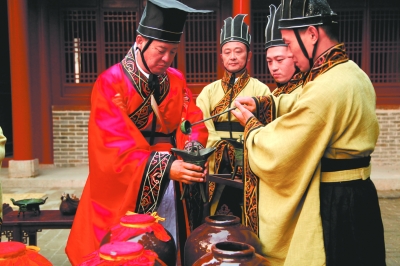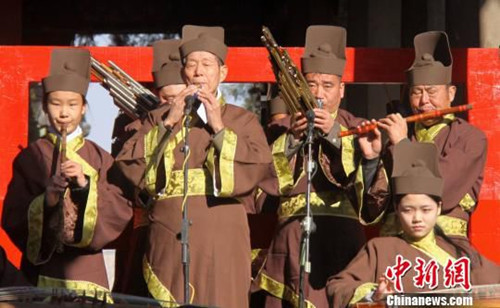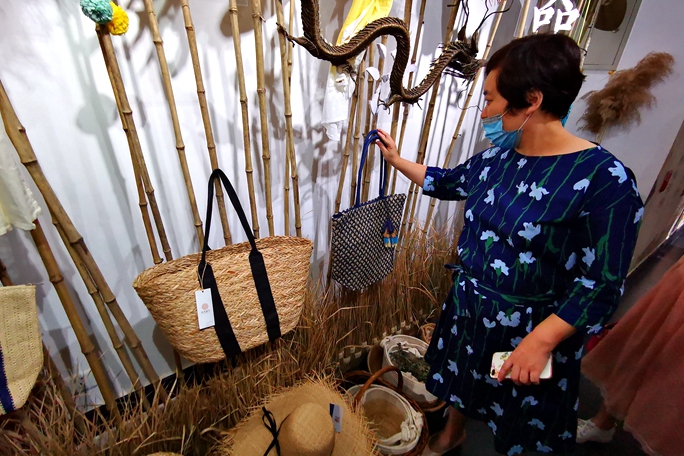Zoucheng holds family sacrificial rites for Mencius
A grand memorial ceremony for the ancient Chinese thinker Mencius (372 BC-289 BC) was held in Zoucheng county, Shandong province, on Dec 22.
The ceremony started at 10:00 am. Mencius' descendent, Meng Xiangju, honorary president of the Chinese Meng's Clansman Association, hosted the family's sacrificial rites.
Meng, on his knees, solemnly read an elegiac address for Mencius. Then troupers in traditional costumes displayed rites from the Song Dynasty (960-1279) in music and dance performances.
"The elegiac address praises Mencius' profound influence on traditional Chinese culture. The performance of ancient rituals shows the descendants' respect for Mencius and our maintenance of traditional culture", said Meng.
This year, Dec 22 was the day of dong zhi, the winter solstice under the traditional Chinese calendar. People traditionally eat Jiao zi (dumplings) containing meat or vegetables to celebrate the day.
Mencius passed away on the winter solstice in 289BC (aged 84), about 2,000 years ago. His descendants in Zoucheng have historically shown their sorrow by eating vegetarian dishes and holding a memorial ceremony rather than celebrating the day, according to records in the Mencius family.
Mencius is most famous for his theory of human nature, according to which all human beings share an innate goodness that can either be cultivated through education and self-discipline, or squandered through neglect and negative influences, but never lost altogether.
Zoucheng county is the hometown of Mencius. It holds various activities every year to pay tribute to his great contributions to Chinese culture and world civilization.
 |
|
A grand memorial ceremony for the ancient Chinese thinker Mencius (372 BC-289 BC) held in Zoucheng county, Shandong province, on Dec 22. [Photo/ccdy.cn] |
 |
|
Troupers in traditional costumes imitate Confucian rites from the Song Dynasty (960-1279) in a musical performance. [Photo/Chinanews.com] |

 Shandong Culture and Tourism Consumption Season
Shandong Culture and Tourism Consumption Season Culture, tourism sectors pick up in Shandong as epidemic wanes
Culture, tourism sectors pick up in Shandong as epidemic wanes

